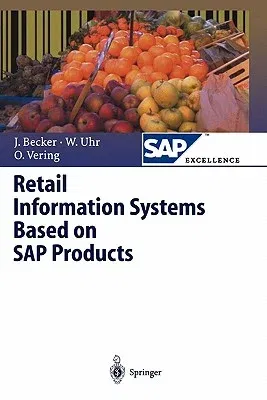Jörg Becker
(Author)Retail Information Systems Based on SAP ProductsPaperback, 4 December 2010

Qty
1
Turbo
Ships in 2 - 3 days
In Stock
Free Delivery
Cash on Delivery
15 Days
Free Returns
Secure Checkout
Part of Series
SAP Excellence
Print Length
248 pages
Language
English
Publisher
Springer
Date Published
4 Dec 2010
ISBN-10
3642086543
ISBN-13
9783642086540
Description
Product Details
Book Format:
Paperback
Country of Origin:
NL
Date Published:
4 December 2010
Dimensions:
23.39 x
15.6 x
1.4 cm
ISBN-10:
3642086543
ISBN-13:
9783642086540
Language:
English
Location:
Berlin, Heidelberg
Pages:
248
Publisher:
Series:
Weight:
371.95 gm

